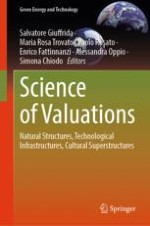2024 | OriginalPaper | Buchkapitel
The Tip and the Bottom. What Makes an Estimate True?
verfasst von : Stefano Caputo
Erschienen in: Science of Valuations
Verlag: Springer Nature Switzerland
Aktivieren Sie unsere intelligente Suche, um passende Fachinhalte oder Patente zu finden.
Wählen Sie Textabschnitte aus um mit Künstlicher Intelligenz passenden Patente zu finden. powered by
Markieren Sie Textabschnitte, um KI-gestützt weitere passende Inhalte zu finden. powered by
